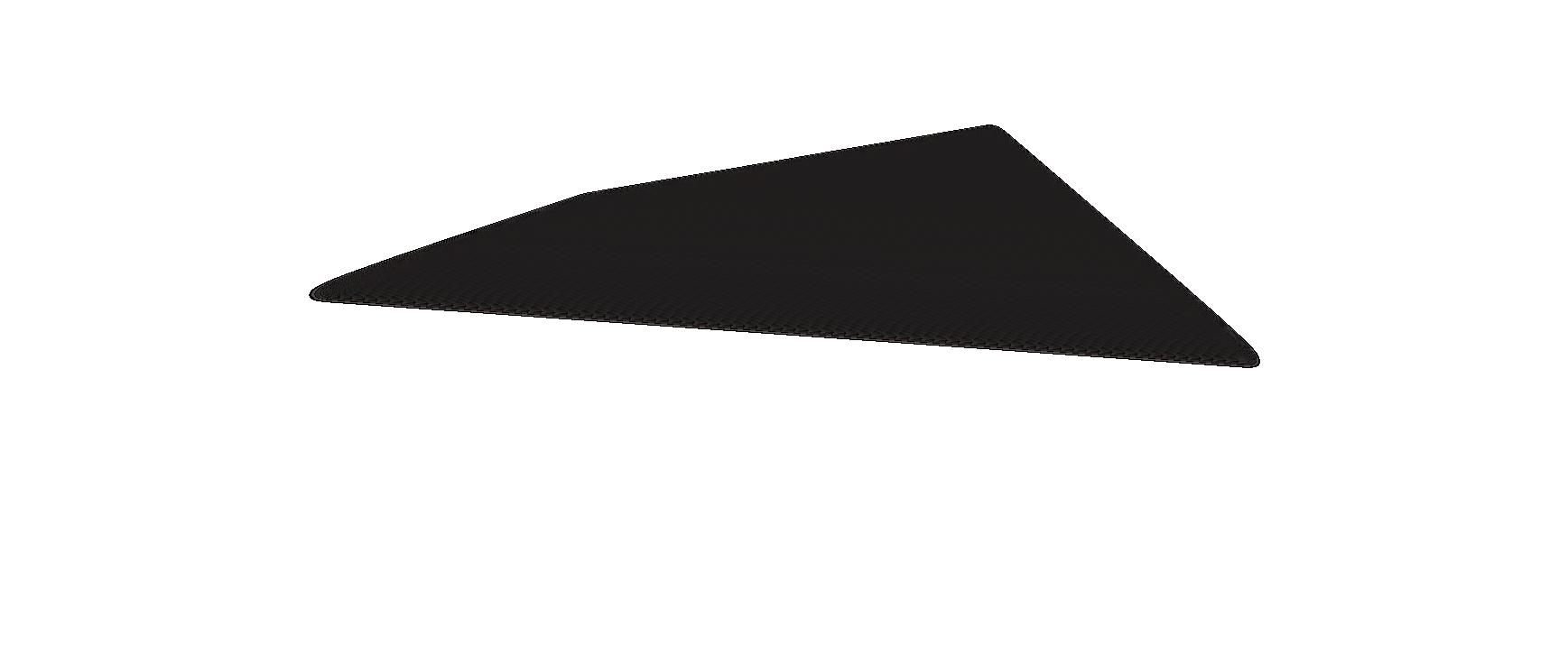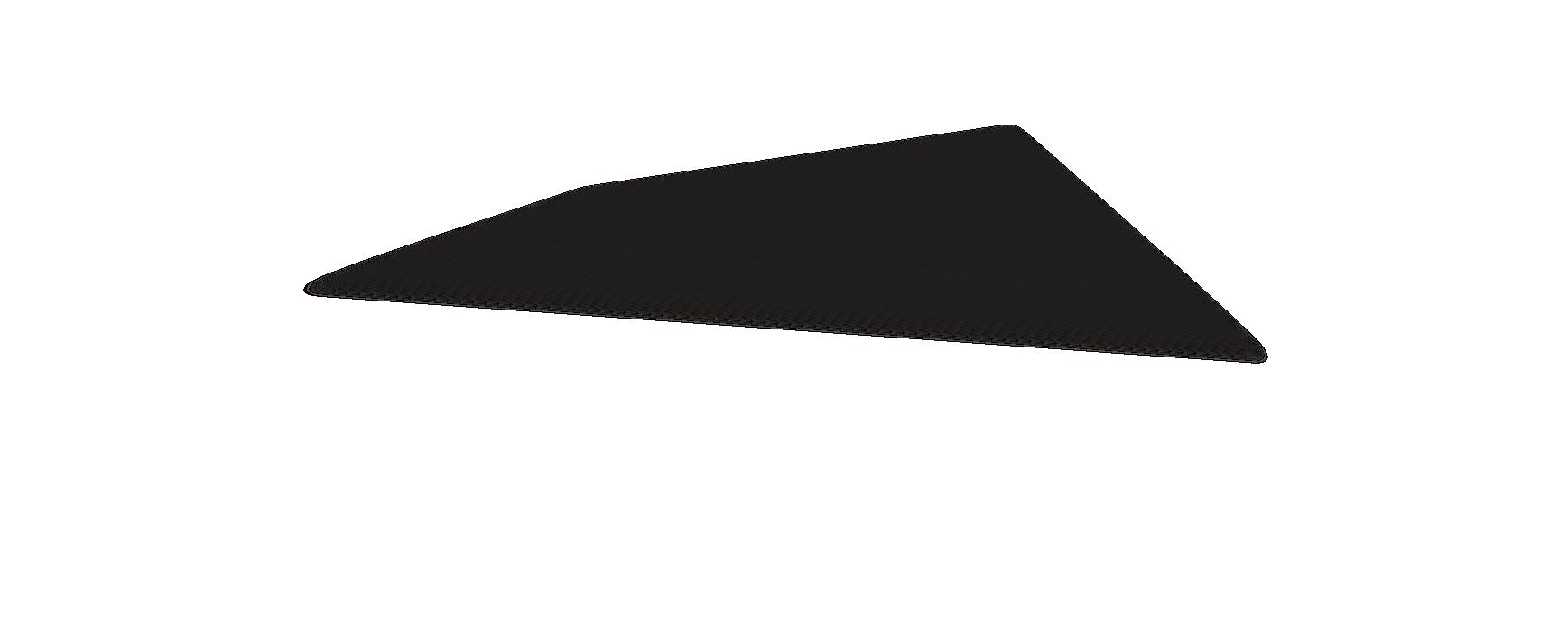JAYME TAYLOR CONDUCTOR
DAVID DAVIS
GRADUATE STUDENT CONDUCTOR

OCTOBER 8, 2024 7:30 P.M.
GRIFFIN CONCERT HALL
Tuesday Evening, October 8, 2024 at 7:30
The Colorado State University Symphonic Band Presents:
Old, New, Borrowed, Blue
JAYME TAYLOR, conductor
DAVID DAVIS, graduate student conductor
JOHN BARNES CHANCE
Blue Lake Overture (1971)
GUSTAV HOLST
Arr. Gordon Jacob
“March” from Moorside Suite (1928/1960)
PETER MENNIN
Canzona (1951)
ERIC WHITACRE
October (2000)
KEVIN POELKING
David Davis, graduate student conductor
Refractions (2024)
GIOACCHINO ROSSINI
Arr. Kenneth Singleton
“Overture” from The Barber of Seville (1816/2002)
Notes on the Program
The members and director of the CSU Symphonic Band would like to thank you for attending this evening’s concert titled “Old, New, Borrowed, Blue” featuring an eclectic grouping of music spanning the breadth of modern wind band literature. This evening we will present a classic “old” work from the mid-20th century that is a quintessential example of mid-20th century band works, a brand “new” work premiered just this year by one of our very own faculty members, two “borrowed” transcriptions of an opera overture and a piece for brass band, and something “blue” written for one of the premier fine arts academies in the country. Please enjoy this journey across the history of the modern band era.
Blue Lake Overture (1971)
JOHN BARNES CHANCE
Born: 20 November, 1932, Beaumont, Texas
Died: 16 August, 1972, Lexington, Kentucky
Duration: 5 ½ minutes
John Barnes Chance began composing while attending Beaumont High School (Beaumont, Texas) where he performed on percussion in the school band and orchestra. It was during this time that he wrote his first symphony for orchestra, which was premiered during his senior year. He received Bachelor and Master of Music degrees from the University of Texas and played with the Austin Symphony Orchestra, the Fourth U.S. Army Band in San Antonio, and the Eighth U.S. Army Band in Korea.
After leaving the army, Chance was selected by the Ford Foundation to be a part of the Young Composers Project. From 1960 through 1962 he was composer-in-residence at the Greensboro, North Carolina, public schools. It is there that he composed seven pieces for school ensembles including his first work for wind band. Throughout his short career, Chance composed for band, orchestra, chorus, chamber groups and solo instruments. His career was tragically ended when he was accidentally electrocuted in the back yard of his home in Lexington, Kentucky, in 1972 at the age of 40.
Blue Lake Overture was the first commission by Blue Lake Fine Arts Camp which was established in 1966 and is located in West Michigan. The premiere performance was given in early 1971 by the Western Michigan University Wind Ensemble with the composer conducting.
With the entire piece based on the original introductory horn theme, the outer sections of the piece feature a rhythmic intensity created by Chance’s free use of the eighth-note groupings of 2 and 3 in 4/4. While this often produces a 3+3+2 pattern which matched the length of the 4/4 bar, more often the note groupings defy that meter altogether, spilling over bar lines and creating moments that sound like 6/8, 8/8, and 9/8. The middle section settles into a circus-y waltz with wandering tonality.
Blue Lake Overture, in the original edition, with the A section and the repeat of the A section metered in 4/4 presented unrealistic metric challenges. Chance had written the work in asymmetric meters, but the meters were changed to 4/4 by the publisher. The premier performance, conducted by the composer, was performed in the original meters. The original score is missing, but Carl Bjerregaard, Donald Flickinger, and Myron Welch have made an edition which restores the asymmetric meters as was the composer’s original intent. The American Bandmasters Association Educational Projects Committee understood the value of this project and supported the creation of this revised edition.
— Program note from the publisher (revised edition)
Moorside March from A Moorside Suite (1928/1960)
GUSTAV HOLST
Arr. Gordon Jacob
Born: 21 September, 1874, Cheltenham, United Kingdom
Died: 25 May, 1934, London, United Kingdom
Duration: 5 minutes
Gustav Holst is renowned for his contributions to the wind band literature, while leaving behind a diverse compositional output unbiased towards any particular ensemble. He came from a generationally musical family, studying violin, piano, and trombone. A combination of preference and health issues led to trombone being his instrument of choice long term. He would spend the early part of his career performing primarily with the Scottish Opera and the White Viennese Band, though he did take other small roles as an organist in local churches. As a freelance trombonist, he studied for a few years at the Royal College of Music (RCM) under Charles Villiers Stanford before departing to begin his professional career writing music. It was during his years at the RCM that he met Ralph Vaughn Williams who became a close friend and influence on his writing. Other early influences included Dvorak, Grieg, Purcell, and Wagner.
Holst’s compositions span a wide range, both with the types of ensembles he wrote for as well where he found inspiration. Some examples of source material he used include his own translations of Sanskrit passages, Indian mythology, hymns from the Hindu Rig Veda, and music he heard while walking the streets in Algeria. In a more mainstream approach, he joined Vaughn Williams in the folk song revival in the early 20th century with A Song without Words and A Somerset Rhapsody. He is most remembered for his two suites for band and acclaimed suite for orchestra The Planets. Despite this, he believed his most significant works were his first Choral Symphony and orchestral tone poem, Egdon Heath. He valued authenticity over popularity and was motivated more by what he had to say instead of catering to public opinion.
Moorside March was originally the third movement in a suite written for the British National Brass Band Championship in 1928. This test piece was played by all competing groups and remains Gustav Holst›s first and only contribution to the brass band literature. Despite the lack of successive works in the genre, Holst was reportedly delighted at the performance, writing to The British Bandsman and remarked that he “listened to musicians conducted by musicians.” The suite was written near the end of his composing career, just six years before his death, and inspired several brass band commissions from others in the wake of its success. Holst began transcribing the suite for a military band setting but did not finish this endeavor; the incomplete project now resides in the British Museum. This arrangement comes to us from Gordon Jacobs who transcribed the work in 1960.
— Program note by David Davis
Canzona (1951)
PETER MENNIN
Born: 17 May, 1923, Erie, Pennsylvania
Died: 17 June, 1983, New York, New York
Duration: 5 minutes
Peter Mennin was a prominent American composer, teacher and administrator. In 1958, he was named Director of the Peabody Conservatory in Baltimore, and in 1962 became President of the Juilliard School, a position he held until his death in 1983. Canzona is his only work for wind band.
Canzona is a short, brisk work, which opens with a declamatory idea expressed in massed sonorities. Next, a broad melodic line is introduced and supported by powerful rhythmic figurations. This is followed by a cantabile section. These materials are developed and expanded, and the piece closes with the opening statements brought back in a more dramatic presentation.
Canzona was commissioned by Edwin Franko Goldman through The League of Composers, and was premiered by the Eastman Wind Ensemble, Frederick Fennell conducting, in New York on 15 June 1951. The concept of the canzona as set forth here is not that of lyrical song implied by the name, but rather that of the early Baroque canzona by Gabrieli in the late 16th century in Venice. Using the reeds and brasses of the band, Mennin has created a stunning essay of contrasting sonorities in a 20th-century manner.
— Program note by the composer
October (2000)
ERIC WHITACRE
Born: 2 January, 1970, Reno, Nevada
Currently Resides in Belgium
Duration: 7 ½ minutes
Eric Whitacre’s first musical experience was singing in his college choir. Though he was unable to read music at the time, Whitacre began his full musical education at the University of Nevada, Las Vegas, eventually taking a bachelor’s degree in music composition. He wrote his first concert work, Go, Lovely Rose, at the age of 21. Wihtacre went on to the Juilliard School, earning his Master of Music degree and studying with John Corigliano and David Diamond. At the age of 23 he completed his first piece for wind orchestra, Ghost Train, and his popular wind piece Godzilla Eats Las Vegas stems from this period. He graduated in 1997 and moved to Los Angeles to become a full-time professional composer.
“October is my favorite month. Something about the crisp autumn air and the subtle change in light always make me a little sentimental, and as I started to sketch I felt that same quiet beauty in the writing. The simple, pastoral melodies and subsequent harmonies are inspired by the great English romantics (Vaughan Williams and Elgar) as I felt that this style was also perfectly suited to capture the natural and pastoral soul of the season. I’m quite happy with the end result, especially because I feel there just isn’t enough lush, beautiful music written for winds.”
October was commissioned by the Nebraska Wind Consortium, Brian Anderson, Consortium Chairman. October was premiered on May 14th, 2000, and is dedicated to Brian Anderson, the man who brought it all together.
Refractions (2024)
KEVIN POELKING
Born: 1988, Downers Grove, Illinois
Currently Resides in Fort Collins, Colorado
Duration: 2 ½ minutes
Unique, thoughtful, and meticulously crafted, Kevin Poelking’s work is quickly emerging in the world of modern music. Always mindful of contributing purposefully to the repertoire, Poelking considers the experience of audience members, musicians, and conductors from the outset of his creative process. This work, Refractions, is part of his “purposeful repertoire consortium” project in which the CSU Symphonic Band is a part and is a winner of the 2024 World Association for Symphonic Bands and Ensembles (WASBE) International Composition Contest. When he is not writing new music, Mr. Poelking is Instructor of Music at Colorado State University where he teaches undergraduate music classes and conducts the CSU Concert Band.
Refraction | ri’frakʃ(ə)n | noun [mass noun]
Physics- the fact or phenomenon of light, radio waves, etc. being deflected in passing obliquely through the interface between one medium and another or through a medium of varying density.
Change in direction of propagation of any wave as a result of its travelling at different speeds at different points along the wave front. — from Oxford Languages
GIOACCHINO ROSSINI
Arr. Kenneth Singleton
“Overture” from The Barber of Seville (1816/2002)
Born: 29 February, 1792, Pesaro, Italy
Died: 13 November, 1868, Paris, France
Duration: 5 minutes
Gioacchino Rossini was an Italian composer who gained fame for his 39 operas, although he also wrote many songs, some chamber music and piano pieces and some sacred music. He set new standards for both comic and serious opera before retiring from large-scale composition while still in his thirties, at the height of his popularity.
The Barber of Seville, or The Useless Precaution is an opera buffa in two acts composed by Gioachino Rossini with an Italian libretto by Cesare Sterbini. The libretto was based on Pierre Beaumarchais›s French comedy, The Barber of Seville (1775). The première of Rossini›s opera took place on 20 February 1816 at the Teatro Argentina, Rome, with designs by Angelo Toselli.
Rossini’s Barber of Seville is considered to be one of the greatest masterpieces of comedy within music, and has been described as the opera buffa of all «opere buffe.” After two centuries, it remains a popular work. This transcription is by retired Director of Bands of the University of Northern Colorado, Kenneth Singleton.
— Program note by the publisher
COLORADO STATE UNIVERSITY MUSIC APPLIED FACULTY
Violin
Ron Francois
Viola
Margaret Miller
Cello
Meredith Blecha-Wells
Bass
Forest Greenough
Guitar
Jeff Laquatra
Flute
Ysmael Reyes
Michelle Stanley
Oboe
Galit Kaunitz
Clarinet
Wesley Ferreira
Saxophone
Peter Sommer
Dan Goble
Bassoon
Cayla Bellamy
Trumpet
Stanley Curtis
Horn
John McGuire
Trombone
Drew Leslie
Tuba/Euphonium
Chris Bloom
Percussion
Eric Hollenbeck
Shilo Stroman
Harp
Kathryn Harms
Piano
Bryan Wallick
Tim Burns
Organ
Joel Bacon
Voice
Nicole Asel
Tiffany Blake
John Lindsey
Piccolo/Flute
CJ Buttermann
Angela Guerrero-Araujo
COLORADO STATE UNIVERSITY SYMPHONIC BAND
Austin, TX Senior
Dallas, TX Freshman
Marilyn Macrina Loveland, CO Freshman
Elise Renner Aurora, CO Sophomore
*Benjamin Rogers Aurora, CO Sophomore
Noelani Valasco
Ewa Beach, HI Freshman
Katie Wicklein Broomfield, CO Senior
Oboe
*Sophie Haase Lakewood, CO Junior
Don Josephson Fort Collins, CO Freshman
Bb/Bass/Contra Bass Clarinet
*Rachel Bowyer
Colorado Springs, CO Senior
Peter Hansen Elko, NV Graduate Student
Alexis Highland Loveland, CO Freshman
Alex Hull Aurora, CO Freshman
Amalie Knudsen Littleton, CO Sophomore
Makaylee Lange Denver, CO Senior
Kaiden Pink Loveland, CO Freshman
Orion Rayburn Fort Collins, CO Freshman
Ashlyn Schall Greeley, CO Junior
Emma Souza Minneapolis, MN Sophomore
Bassoon/Contra Bassoon
*Zeke Graf
Bemidji, MN Sophomore
Kami Karr Redmond, OR Junior
Joy Perry-Grice
Alto/Tenor/Baritone Saxophone
Isaiah Allen
Olivia Calzaretta
Windsor, CO Freshman
Pueblo, CO Sophomore
Aurora, CO Junior
AJ Kalvelage Castle Rock, CO Junior
BM Music Education
BM Music Therapy
BM Music Therapy
BM Music Education
BM Performance
BS Biomedical Science
BS Accounting
BM Music Education
BA Music
BM Music Therapy
MM Performance
BM Music Education
BM Music Education
BS Biology
BM Music Therapy
BS Mathematics
BM Performance, BS Mech. Eng.
BS Horticulture
BA Journalism and Media Comm.
BM Music Education
BA English, Music Minor
BM Music Education, BA Dance
BM Composition
BM Music Education
BA Music
Alto/Tenor/Baritone Saxophone (CONT.)
*Bailey Permenter
Greeley, CO Freshman
Alex Rumley Greeley, CO Sophomore
Aden Valdez Windsor, CO Junior
Horn
*Sadie Connor Centennial, CO Senior
Camden Ewing Ladera Ranch, CA Freshman
Gabriella Steiner Pella, IA Senior
Trumpet/Cornet
Ethyn Bazzeghin
Colorado Springs, CO Sophomore
Lucy Bufton Fort Collins, CO Freshman
Alex Gregory Lafayette, CO Sophomore
Alexa Hudson Littleton, CO Senior
Hunter Luedtke Windsor, CO Junior
Jaime Perez-Rosa Gunnison, CO Sophomore
Ryan Robinson Broomfield, CO Senior
Natalie Powers Montrose, CO Freshman
*Bryce Wicks Fort Collins, CO Sophomore
Trombone/Bass Trombone
Ethan Barker Littleton, CO Sophomore
Jonnina Edmunds Cheyenne, WY Junior
Caelan Herk Erie, CO Junior
Cameron Honnen Grand Junction, CO Graduate Student
Brennan Hudson Littleton, CO Senior
Carson Koch
Colorado Springs, CO Freshman
*Silas Riep Fort Collins, CO Freshmen
Travis Wohlstadter Paso Robles, CA Graduate Student
Euphonium
*Ryann Starr
Gabe Weldon
BA Performance
BM Composition
BA Music, Ethics Studies
BS Biology
BA Music Therapy
BS Psychology
BM Performance
BM Music Education
BM Music Education
BA Music, Interdisciplinary Arts
BM Music Education
BM Performance
BA Business, Music Minor
BM Performance
BM Composition
BM Music Education
BS Biomed/Chem Eng.
BM Music Education
MM Performance
BA Music, Interdisciplinary Arts
BM Performance
BM Performance
MM Performance
Colorado Springs, CO Senior
Colorado Springs, CO Senior
BA Music
BS Biology
Tuba
Samuel Hailey
Kayden Jorge
*Adria Leos
Declan Walsh
Percussion
Bradley Brungardt
Ashby Deitz
Marley Delaney
Nina Dorighi
Chase Heacox
Juno Okins
Alex Ringerund
*Neo Shaffer
Loveland, CO Sophomore
Aurora, CO Freshman
Abilene, TX Senior
Aurora, CO Freshman
BS Geology, Music Minor
BM Performance
BM Performance
BS Mechanical Eng., Music Minor
Steamboat Springs, CO Sophomore
Chester, NJ Junior
Castle Rock, CO Freshman
Denver, CO Junior
Lone Tree, CO Freshman
Pueblo, CO Freshman
Columbia, MD Junior
Fort Collins, CO Freshman
Aedyn Simon Aedyn, CO Junior
Ashley Simmons
Graduate Assistants
David Davis
Cameron Honnen
James Mepham
*Denotes Principal
Aurora, CO Senior
Gig Harbor, WA Graduate Student
Grand Junction, CO Graduate Student
Great Falls, MT Graduate Student
BS Electrical Eng., Music Minor
BS Comp Sci, Music Minor
BS Biochemistry, Music Minor
BS Psychology, Music Minor
BM Performance
BM Music Education
BS Mechanical Eng., Music Minor
BM Performance
BS Computer Science
BS Psychology, Music Minor
MM Performance
MM Performance
MM Performance

Dr. Jayme Taylor is assistant professor of music and the Associate Director of Bands and Director of Athletic Bands at Colorado State University. His duties at CSU include serving as conductor of the Symphonic Band and directing the Colorado State Marching Band, Rampage Basketball Band, and Presidential Pep Band. Prior to his appointment at Colorado State, Dr. Taylor served as assistant professor of music education and conductor of the Wind Ensemble at CarsonNewman University in Jefferson City, TN and as Assistant Director of Bands and Assistant Director of Athletic Bands at the University of South Carolina. His teaching career began with the bands in Clinton, TN serving as director of the Clinton City Schools and Clinton Middle School band program teaching 6-8 grade band and jazz band and assisting the director of bands at Clinton High School. Dr. Taylor finished his secondary school teaching as the Director of Bands in Clinton overseeing the award-winning Clinton High School Marching Band, two concert bands, jazz band, winter guard and indoor percussion ensembles, and two middle school feeder programs. His marching and concert ensembles regularly earned “superior” ratings at performance assessment and competitions.
Dr. Taylor’s concert ensemble has been invited to perform at the East Tennessee Band and Orchestra Association’s All-East Senior Clinic Honor Band as the guest collegiate ensemble. He has also given consortium premieres of works by Benjamin Dean Taylor, Michael Markowski, and Kevin Poelking, as well as the Ion Concert Media video to accompany David Maslanka’s A Child’s Garden of Dreams, and performed the world premiere of Kevin Poelking’s Slate for brass and percussion. Taylor was a guest conductor with the University of South Carolina Wind Ensemble on their concert tour of China in 2012.
Dr. Taylor’s conference presentations include a discussion on his dissertation “The Wind Ensemble ‘Trilogy’ of Joseph Schwantner: Practical Solutions for Performance” at the College Band Directors National Association (CBDNA) South Regional Conference in 2016, Common Drill Writing Mistakes and How to Avoid Them at the 2023 Colorado Music Educators Association (CMEA) Conference, and two co-presentations for the CBDNA Athletic Band Symposium titled “Halftime 360o: Entertaining Your Entire Fan Base” in 2014 and “Building Your Brass Line: Tips & Tricks for Improving Your Marching Band Brass Section” in 2015.
Dr. Taylor is an active clinician and has conducted regional and district honor bands in South Carolina, Tennessee, and Colorado. As an adjudicator, he has judged marching and concert bands throughout the southeast. He is a prolific drill designer for high school and collegiate marching bands having written for bands throughout the country from South Carolina to Hawaii. Dr. Taylor was an instructor at the University of South Carolina Summer Drum Major
Camp for 4 years. He is an alumnus of the Bluecoats Drum and Bugle Corps of Canton, OH. Taylor spent three years as brass instructor, high brass coordinator, and assistant brass caption head for the Troopers of Casper, WY beginning with their return to competition in 2007 through their return to DCI finals in 2009. He also worked as brass instructor and assistant brass caption head for the Cavaliers of Rosemont, IL in their 2010 season.
Dr. Taylor earned his Doctor of Musical Arts in Instrumental Conducting from the University of South Carolina studying under James K. Copenhaver and Dr. Scott Weiss. He holds a Master of Music in Instrumental Conducting and a Bachelor of Music in Music Education from the University of Tennessee, Knoxville. He has also studied conducting with Eugene Corporon, Kevin Sedatole, and Jerry Junkin.
Dr. Taylor is a member of the College Band Directors National Association (CBDNA), the National Band Association (NBA), The Colorado Bandmaster’s Association (CBA), the National Association for Music Education (NAfME), Pi Kappa Lambda, is Chapter Sponsor for the Kappa Chapter of Kappa Kappa Psi at Colorado State as well as an honorary member of Tau Beta Sigma and Kappa Kappa Psi, and is an alumnus of Phi Mu Alpha Sinfonia. Happy Birthday to Bailey Kendall Taylor whose first birthday is in just 4 days!

David Davis, originally from Boise Idaho, currently serves as a graduate teaching assistant at CSU where he assists with all aspects of a comprehensive band program and will appear as a guest conductor for the Wind Symphony, Symphonic Band, Concert Band, and TubaEuphonium ensemble. In addition, he works with the CSU Marching Band, Presidential Pep Band, and Rampage Basketball Band. His primary conducting teachers include Dr. Rebecca Phillips and Professor Marcellus Brown. Mr. Davis has participated in several workshops, receiving instruction from retired Col. Jason Fettig, Professor Jerry Junkin, and Dr. Dennis Llinas.
Mr. Davis graduated with honors from Boise State University with a Bachelor of Music in Music Education. During his undergraduate years he played clarinet with the symphonic winds and all-campus band, studying under Dr. Leslie Moreau. He was a member of the BSU Blue Thunder Marching Band in their sousaphone section, served in multiple leadership positions, and was selected for the 2019 Living Legacy Award for distinguished service. His final year he was a soloist in the exhibition performance at the District 3 Mel Shelton marching competition. He has traveled and performed with the Seattle Cascades drum and bugle corps during their 2018 season as well as with Boise’s first independent WGI winds
group, Armada Winds. Internationally, he has performed in England, France, Switzerland, Germany, and Austria. His private instructors for tuba include Professor Adam Snider, Dr. Bill Waterman, and Dr. Christopher Bloom.
After graduating from Boise State in 2019, Mr. Davis was director of bands at Middleton High school in Idaho where he taught the wind ensemble, symphonic band, jazz band, and athletic bands. He is currently on a leave of absence while pursuing his graduate degree. During his tenure, the bands consistently received high ratings at district festivals. Under his direction the program collaborated with community and collegiate ensembles and had strong representation in local and regional events. The Middleton High school band was invited to and performed in Logan, Utah for the Music in the Parks Festival in 2022. Mr. Davis was elected president of the Treasure Valley Honor Meet in 2021, a group created in the 1970’s to provide smaller programs, outside the immediate Boise area, with the opportunity to play in a large ensemble.
During these years as an educator, Mr. Davis has been active as a performer. He recently collaborated with the BSU Tuba-Euphonium ensemble, performing at the 2024 International Tuba Euphonium Association regional conference in Oregon. In addition, he has performed with the Brass Band of the Treasure Valley. Most notably he was a tubist in the Treasure Valley Concert Band since 2021 under the direction of Marcellus Brown, and was invited to guest conduct at their closing concert at the 2024 Boise Music Week.

Symphonic Band Concert







